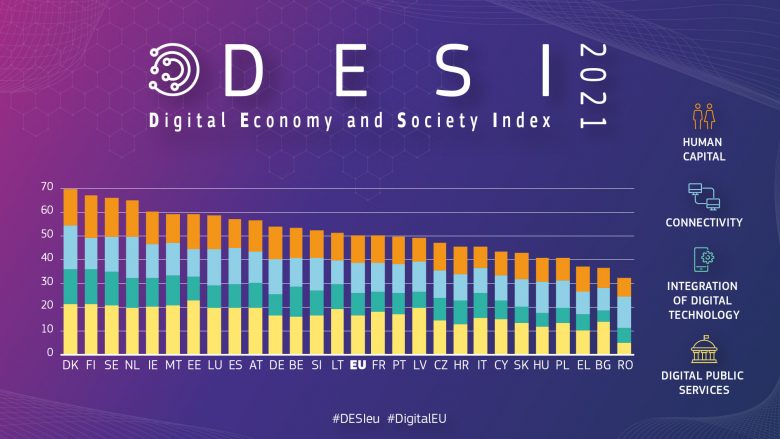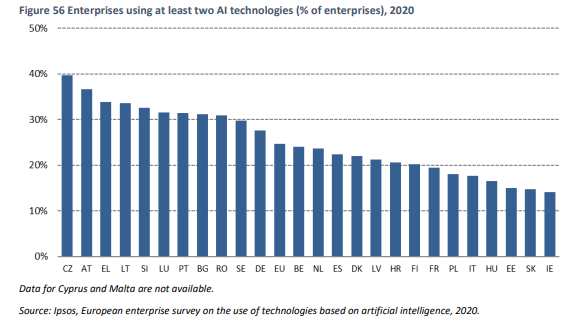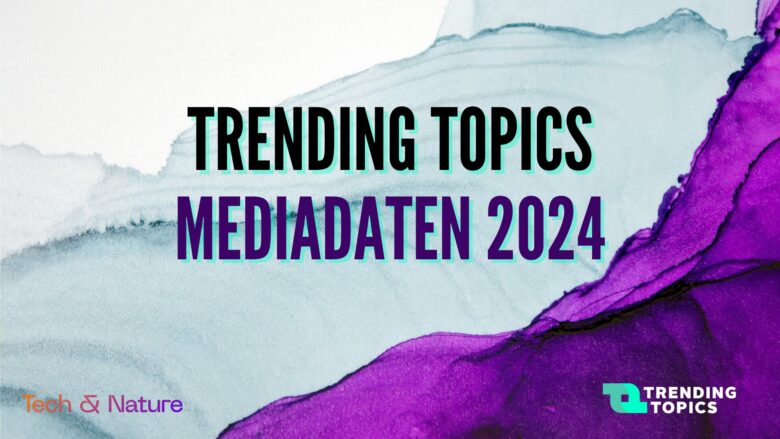European Commission Report: Overall progress in digital transition in EU but huge gap in the development of member states

Recently, the European Commission published the results of the annual Digital Economy and Society Index (DESI) 2021. The report presents an analysis of Europe’s digital performance and tracks the progress of EU member countries. The DESI 2021 report is based mainly on data from the first half of 2020 and examines 5 key areas:
- Human capital
- Connectivity
- Integration of digital technology
- Digital public services
- Research and development in Information & Communication Technologies (ICTs)

“The message of this year’s index is positive, all EU countries have made some progress in getting more digital and more competitive, but more can be done. So we are working with the Member States to ensure that key investments are made via the Recovery and Resilience Facility to bring the best digital opportunities to all citizens and businesses,” shares Margrethe Vestager, the Executive Vice-President of the European Commission.
The DESI 2021 report offers a great overview of the digital transformation in Europe during the first year of the COVID-19 pandemic. Generally, all EU member states have made progress in the area of digitalization, but the overall picture across member states is mixed, and despite some convergence, the gap between the EU’s frontrunners and those with the lowest DESI scores remains large.
According to the results presented in DESI 2021, Nordic countries have performed best (Denmark, Finland, Sweden) in comparison to member states in Eastern Europe which rank at the bottom (Romania, Bulgaria, Greece). The best-performing countries in DESI 2021 are:
- Denmark
- Finland
- Sweden
- Netherlands
- Ireland
- Malta
- Estonia
- Austria
- Germany
- Belgium
Human Capital and Connectivity
The “human capital” category in DESI 2021 has two sub-dimensions covering “internet user skills“, including general digital skills and use of digital devices, and “advanced skills and development“, including ICT specialists, ICT graduates, and enterprises providing ICT training.
Generally, the digital skills of Europeans have increased in comparison to previous years. 25 out of the 27 member states have incorporated 5G for a better connection. 91% of the households have access to the internet at home and 56% of EU citizens have at least a basic level of digital skills. Altogether, 8.4 million professionals worked in the ICT industry.
Finland is leading in Human capital, followed by Sweden, the Netherlands, and Denmark. Romania and Bulgaria are among the countries with the lowest Internat user skills.
Integration of Digital Technologies
This category aims to look at the digital technologies used to gain a competitive advantage and improve services. The report reveals that during the first year of the COVID-19 pandemic, significantly more small and medium enterprises (SMEs) have adopted new forms of digital technologies to boost their business. Most broadly are integrated various cloud technologies, especially in industries such as computer programming, consultancy, and retail. Only 14% of EU companies take advantage of the benefits that Big Data offers. The Digital Compass target requires that more than 75% of EU companies adopt cloud computing and Big Data Technology by 2030.
Integration of artificial intelligence (AI) is the first category that is not led predominantly by Nordic countries. The adoption of two or more AI technologies is highest in Czechia (40%), followed by Austria (37%), Greece, and Lithuania (both at 34%). AI is mostly used in the ICT, education, health, and manufacturing sectors.

READ MORE: Report: 34 unicorns have been created in the CEE until today.
Digital Public Services
The “digital public services” category examines the development of e-governance, digital public services for citizens and businesses, open data. Denmark, Finland, and the Netherlands performed very well on this measure, with more than 90% of internet users (aged 16-74) interacting with the public administration choosing governmental portals. However, there has not been a major improvement in the digital public services category over the past year.
Despite these improvements, all member states will need to make concerted efforts to meet the 2030 targets as set out in Europe’s Digital Decade. You could find the separate DESI 2021 reports of every EU member country here.





























